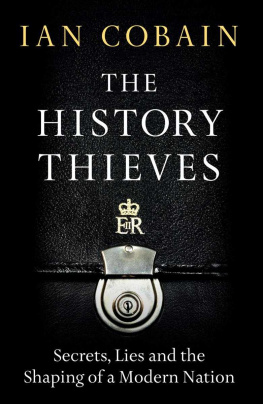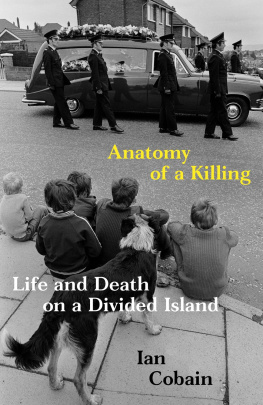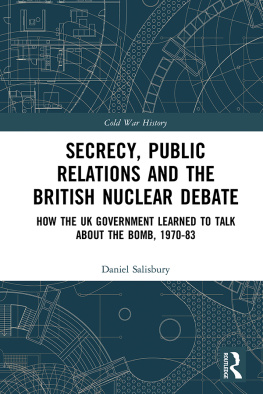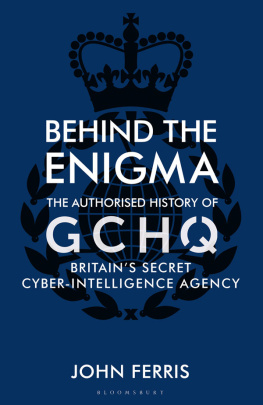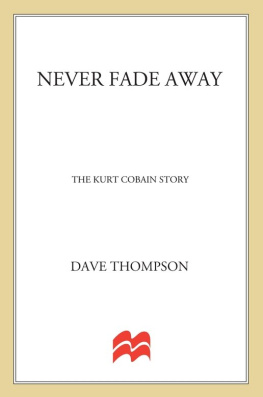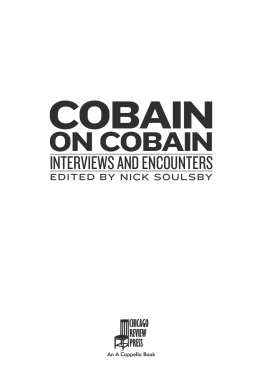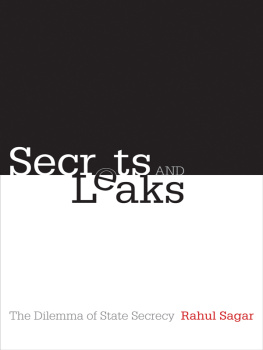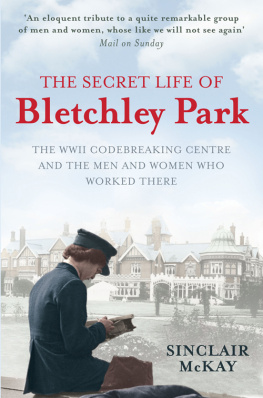Introduction
One Saturday morning in the summer of 2013, two British government intelligence officials called at the offices of the Guardian in London to oversee the destruction of several of the news organisations computers.
The hard drives of those computers held a mass of documents from the UK signals intelligence agency, the Government Communications Headquarters, and its US partner, the National Security Agency. There were thousands of documents, many thousands, and they detailed the way in which the two agencies had attempted and largely succeeded in their ingenious attempts to capture the details of every digital communication that was being sent or received by anyone, anywhere, at any time.
Before that mornings visit the Guardian had been under threat: if the two government officials were not permitted to witness the complete destruction of the hard drives, senior journalists could face prosecution under the Official Secrets Act, or an injunction, or both.
It appeared to be an extraordinarily pointless gesture. The Guardian had already told the governments most senior official, the Cabinet Secretary, that there were copies of the documents in the United States, and that he would be unable to prevent American news organisations from reporting on their contents.
But the visitors were not to be deterred. One had arrived with a rucksack from which he took a machine resembling a microwave oven. It was a degausser, he said, a device that destroyed magnetic fields. Once the hard drives had been drilled and hacked with angle-grinders, the broken pieces were fed into it.
The machine was switched on, and after a few moments, much to the satisfaction of the two watching intelligence officials, it made a loud pop.
It is sometimes argued that government secrecy and democracy are incompatible: that access to information must be granted in order to hold governments to account. Access is said to be associated with knowledge and the freedom of ideas; it is hailed as a way of making sure that political leaders represent the interests of those they lead. Secrecy, meanwhile, is said to be deployed to preserve exclusivity and mystique, and in order to conceal blunders.
Many of those engaged in the day-to-day business of government dismiss this as bunkum. According to those who actually govern, good government will always, from time to time, be closed government.
And no doubt they are correct. It is not difficult to see that a degree of secrecy is required by government. A high degree must always surround questions of the states military capabilities, for example, both during war and at times of peace. And those who are responsible for preserving collective security at times of terrorist threat expect, understandably, to be able go about their business without fear that their effectiveness will be undermined through disclosure.
Some confidential space must also exist within which policy may be formulated: civil servants and other policy advisors expect to be able to give good and robust advice without fear of embarrassment or censure as a result of the publication of that advice.
But where should the limits be drawn? For example, is it legitimate for a democracy to go to war without the public being consulted, or informed? Is it acceptable for a government to covertly gather and store data on its citizens, and to share that data with foreign powers? And how should we ensure that the limits are observed? Should the secret state be publicly accountable? Or should the mechanisms of political oversight of the security and intelligence agencies, as well as their operations, be hidden from public view? How is the balance between accountability of government and the frankness of discussion within government to be weighed? Should policy-makers and advisors be accountable to the present, or to history? And how much of the remaining, everyday business of government actually needs to be concealed from the public?
These are questions with which every government has to contend. In 1946, for example, Sir Edward Bridges, who had served as Cabinet Secretary throughout the Second World War, offered a succinct view of that which governments might properly wish to keep from the public. In May that year, Bridges advised the Prime Minister, Clement Attlee, on the restrictions that might be imposed on wartime ministers who wished to publish their memoirs. In the international sphere, he wrote, restrictions ought to be placed on information whose disclosure would be injurious to us in our relations with other nations, including information which would be of value to a potential enemy. Within the UK, Bridges suggested that restrictions should be placed on disclosures that would be destructive of the confidential relationships between government ministers, and between ministers and their advisors.
Fifty years later, Tony Blair attempted briefly to set New Labour apart from governments that had come before by arguing for transparency within Whitehall, and putting into motion the legislation that should have created one of the worlds most progressive freedom of information regimes.
In spite of Bridges admonitions and Blairs campaign pledges, the application of official secrecy in Britain has, for the past couple of centuries at least, gone far beyond that which is required for the safe and secure business of government. Official secrecy is not merely rooted in the preferences and practices of those in government. It is integral to public life. Britain is not a nation where official information is merely kept closed on occasion and handled with care: it is a nation where a culture of secrecy runs wide and deep.

